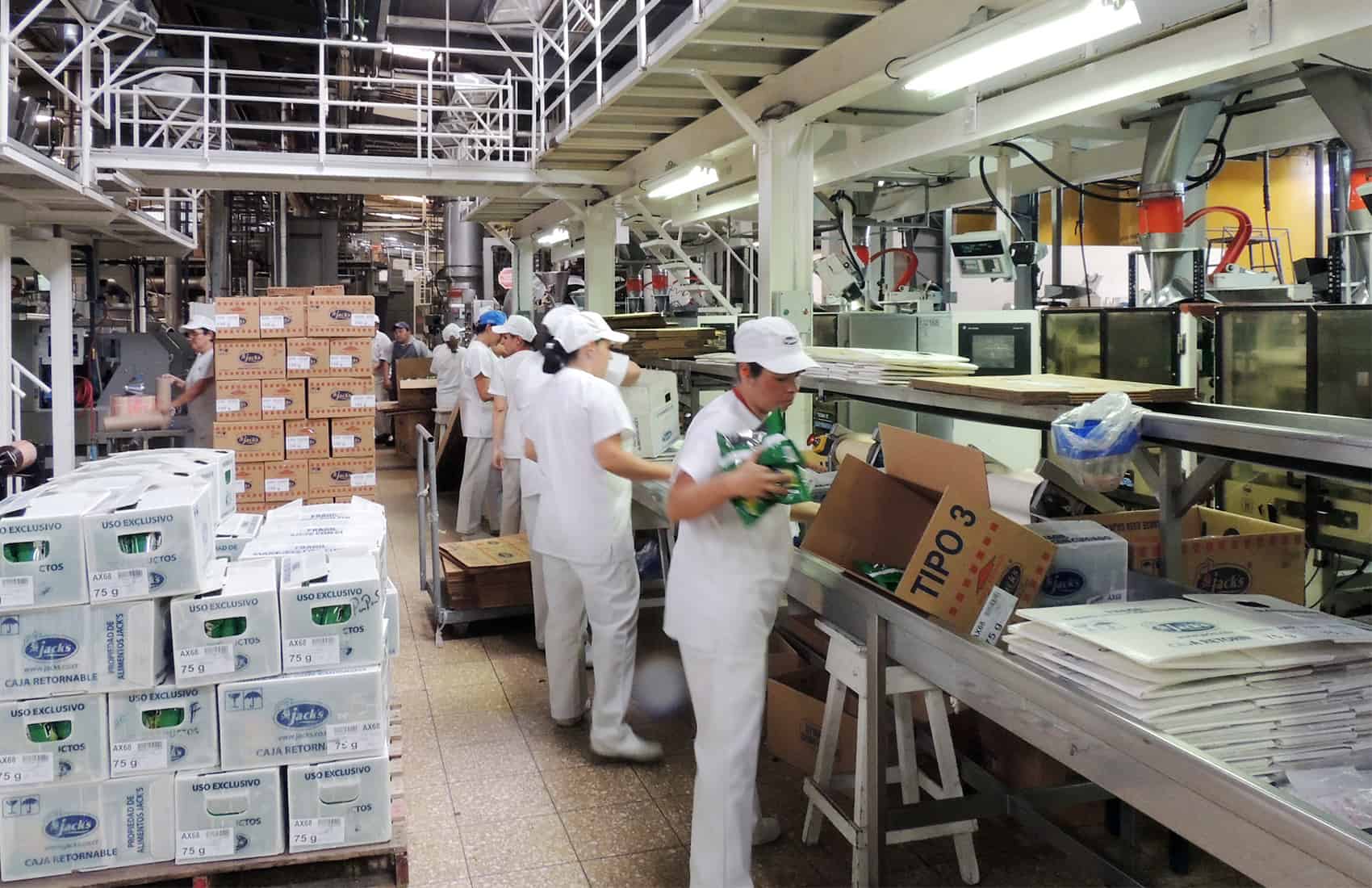Citing high production costs, increasing electricity rates and taxes, the Costa Rican food company Alimentos Jack’s announced plans this week to move 50 percent of its operation to the U.S., El Salvador and Nicaragua. The move will take place over the next five years.
“Our plan is to increase our manufacturing processes in those countries, either with our own investment or through business ventures,” Alimentos Jack’s CEO Andrés Ignacio Pozuelo Arce said in a public statement released Thursday. “We will invest in those markets and also in the Costa Rican market. But not from here, as the country has gotten very expensive and risky.”
The Costa Rican company opened for business 51 years ago in San José and the move initially will represent the dismissal of at least 150 of the company’s 700 employees. Following relocation of the manufacturing plant, the company likely will dismiss more workers. The plant employs 450 people.
Pozuelo had harsh criticism for the Costa Rican government and the country’s business climate.
As an example of the country’s relatively high production costs, Pozuelo said that the per-kilogram cost of producing Jack’s corn snacks in El Salvador or Nicaragua is 25 percent lower than in Costa Rica. He said the per-kilogram cost of producing Jack’s potato chips in the U.S. is around 30 percent lower than in Costa Rica.
The move appears to be part of a gradual exodus out of the company’s native land. In the past three years, Jack’s has moved 15 percent of its operations abroad.
Pozuelo accused the Costa Rican government of having a “voracious” appetite for taxes from national industry, and he urged the government to work out a strategy to lower costs for the sector. He also said Costa Rica should stop spending money on privileges for the public sector and start investing in infrastructure.
On Thursday evening the Costa Rican Food Industry Chamber also voiced its concern about what it said was the country’s loss of competitiveness. The food industry group warned the government about the need to implement immediate action to improve the country’s business climate and reduce costs for companies that create jobs.
“We can only expect the growth of our sector to stagnate and job generation to stop considering excessive red tape from the finance, agriculture, health, environment and energy ministries, plus the high costs of electricity,” chamber president José Manuel Hernando said.
Hernando claimed that a series of recent Finance Ministry guidelines and regulations constituted “barriers to the industry,” as they require companies to hand over large amounts of information, which takes time, money and staff to produce.
“These are just a few examples out of many others that make Costa Rica an unattractive country to maintain operations,” Hernando said.
The food industry group voiced similar concerns in December, saying immediate action was needed to allow industrial production to grow from the 1.8 percent recorded at the time to the minimum 6 to 7 percent it said was needed to create new jobs.
According to the Union of Private-Sector Chambers and Associations, an organization that represents 50 businesses and major sectors of the economy, the wave of layoffs across several sectors of the economy last year culminated in more than 228,000 unemployed Costa Ricans at the end of the third quarter of 2014. The group cited figures from the National Statistics and Census Institute.






